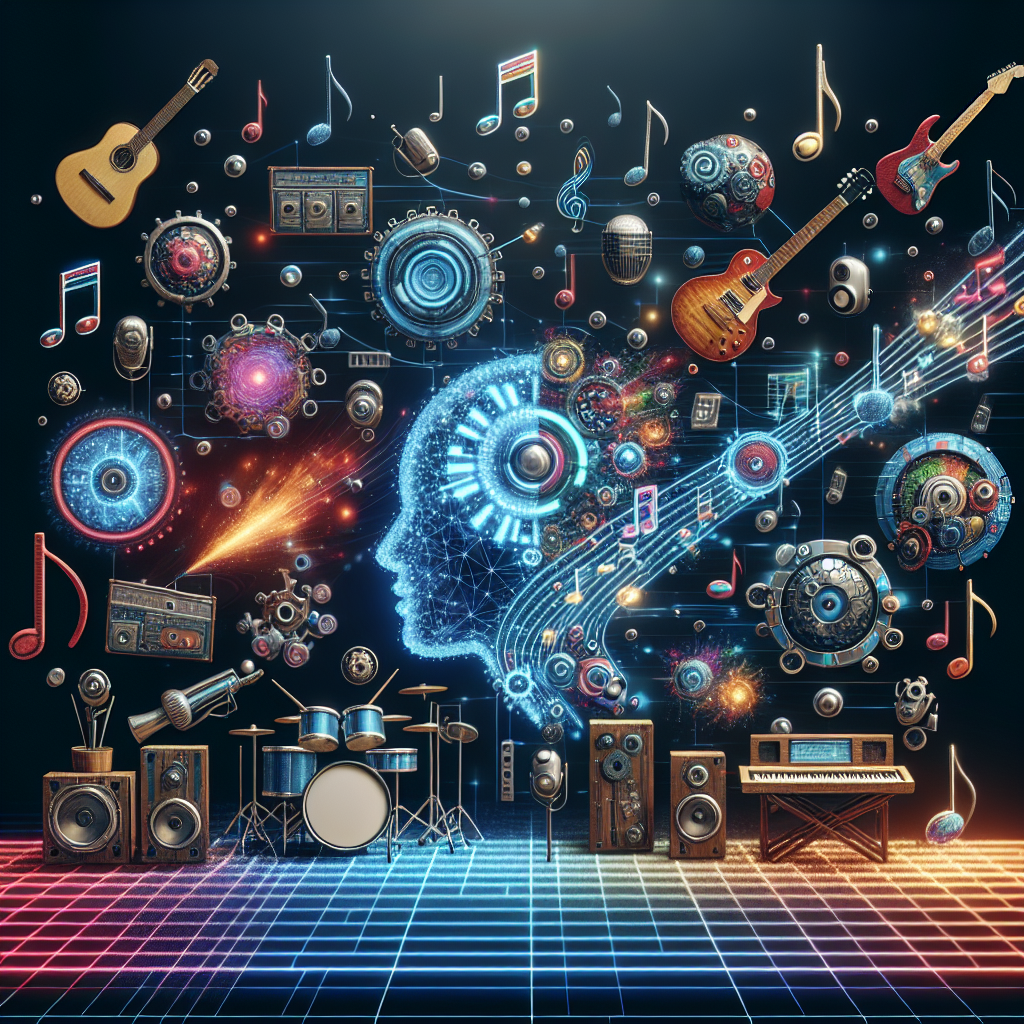Generative AI, also known as artificial intelligence, has been making waves in the music industry in recent years. This technology has the ability to create music autonomously, without the need for human intervention. This has sparked a debate among musicians, music producers, and music enthusiasts about the impact of generative AI on the music industry.
Generative AI works by using algorithms to analyze vast amounts of data and create new music based on patterns and styles it has learned. This means that AI can compose melodies, harmonies, and even lyrics, mimicking the styles of various artists or creating completely new sounds. This technology has the potential to revolutionize the way music is created, produced, and distributed.
One of the most significant impacts of generative AI on the music industry is its ability to speed up the music production process. Traditionally, creating a song from scratch can be a time-consuming and labor-intensive process. With generative AI, musicians and producers can generate music ideas quickly, allowing them to experiment with different sounds and styles more efficiently. This can lead to a more diverse and innovative music landscape, as artists can easily explore new genres and experiment with unconventional ideas.
Generative AI also has the potential to democratize the music industry, making it more accessible to a wider range of artists and musicians. With the help of AI tools, aspiring musicians can create high-quality music without the need for expensive equipment or professional training. This can level the playing field for independent artists and allow them to compete with established musicians on a more equal footing.
Another significant impact of generative AI on the music industry is its potential to enhance the creative process for artists. By providing new ideas and inspiration, AI can help musicians break through creative blocks and explore new musical territories. This can lead to a more diverse and innovative music landscape, as artists can push the boundaries of traditional music genres and experiment with new sounds and styles.
Despite the potential benefits of generative AI, there are also concerns about its impact on the music industry. One of the main concerns is the fear that AI could replace human musicians and producers, leading to a loss of jobs in the industry. While AI can automate certain aspects of music production, such as generating melodies or harmonies, it cannot replace the human touch and creativity that musicians bring to their music. In fact, many artists and producers see AI as a tool to enhance their creativity, rather than a replacement for their skills.
There are also concerns about the ethical implications of using generative AI in the music industry. For example, there are questions about copyright and ownership of music created by AI. Who owns the rights to music created by AI – the AI itself, the person who trained the AI, or the company that developed the AI technology? These are complex legal issues that need to be addressed as generative AI becomes more prevalent in the music industry.
Despite these concerns, generative AI has the potential to revolutionize the music industry and open up new possibilities for artists and musicians. By providing new tools and techniques for music creation, AI can help artists push the boundaries of their creativity and explore new musical territories. As the technology continues to evolve, it will be interesting to see how generative AI shapes the future of music and the way we experience and consume music.
FAQs:
1. How does generative AI work in the music industry?
Generative AI uses algorithms to analyze vast amounts of data and create new music based on patterns and styles it has learned. This technology can compose melodies, harmonies, and even lyrics, mimicking the styles of various artists or creating completely new sounds.
2. What are the benefits of generative AI in the music industry?
Generative AI can speed up the music production process, democratize the music industry, enhance the creative process for artists, and provide new ideas and inspiration for musicians.
3. What are the concerns about generative AI in the music industry?
Some concerns include the fear that AI could replace human musicians and producers, leading to a loss of jobs in the industry, as well as ethical issues around copyright and ownership of music created by AI.
4. How can artists and musicians use generative AI in their music production?
Artists and musicians can use generative AI tools to generate music ideas quickly, experiment with different sounds and styles, break through creative blocks, and explore new musical territories.
5. What is the future of generative AI in the music industry?
As the technology continues to evolve, generative AI has the potential to revolutionize the music industry and open up new possibilities for artists and musicians. It will be interesting to see how AI shapes the future of music and the way we experience and consume music.

